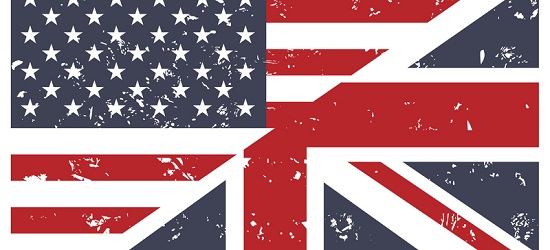Brexit, the E.U. and the "Special Relationship" of the U.S./U.K.
June 30, 2016
Any clique in the E.U. that thinks the U.S. will sit idly by while they "punish" the U.K. had better recalibrate their core interests and the potential for blowback.
One constant in a fast-shifting global chess board is the special relationship between the United Kingdom and the United States. The term special relationship defines a close collaboration diplomatically, militarily and financially.
Some might go so far as to speak of an Anglo-American Empire in terms of finance.
Needless to say, this special relationship impacts the European Union and the longer term impacts of Brexit.

Alliances are as complex as marriages. Just as marriages unite families as well as individuals, so alliances and treaties bind various sectors and agencies of nations in different ways and with different degrees of bonding.
Ties between France and Britain, for example, go back to the Norman invasion of England in 1066. The two have been rivals, adversaries and allies.
Nations that share borders almost always have special relationships due to the histories that go with borders--trade, war, occupation, alliances, etc.
The U.S. also has special relationships with a variety of other nations, relationships that are not like the U.K./U.S. ties but unique and powerful nonetheless.
The U.S. and Russia go way back, to the era of Pacific imperial rivalries in the 19th century, U.S. backing of anti-Communist forces in Russia's civil war, an alliance in World War II, the rivalries of the Cold War and a number of critical cooperative advances such as the SALT limitations on nuclear weapons and the International Space Station (Russia has done the heavy lifting of resupply and provided cosmonauts since the beginning).
China and the U.S. also have a special relationship due to the size and interconnectedness of their economies and their mutual need for cooperation despite the jostling for Great Power influence.
Japan and the U.S. also have a special relationship, from mortal enemies in World War II to the occupation of Japan and the strong economic and diplomatic ties of the postwar era.
France and the Etats-Unis (United States) have long, deep and often fractious ties, stretching back to the French fleet's critical role in sealing the defeat of the British Army in the Revolutionary War (1781). Thousands of American soldiers killed defending France in World War I ("Lafayette, we are here!") and World War II are buried in French soil.
Germany and the U.S. also have a unique relationship due to the long presence of American troops on German soil to make good the U.S. pledge to defend West Germany against Soviet invasion. United Germany and the U.S. remain allies with core interests in maintaining peace and prosperity throughout Europe.
Special relationships are not necessarily harmonious or trouble-free; what they provide is a history of communication and an overlay of self-interest that drives a search for common ground or a level of disagreement that doesn't threaten the core interests of both nations.
Some observers have seen the U.K. as a broker between the E.U. and the U.S. Perhaps this was true in some cases, but I don't think the complexities of the special relationship and the even greater complexities of the E.U. can be distilled down to such a simplistic dynamic.
I think the reality is nobody's in a mood to take orders from anyone. The core interests of all players in the Brexit drama are being recalculated, and areas of common ground and regions of profound disagreement are being mapped out.
There's been some talk that the major E.U. powers will need to punish the U.K. to discourage any other escapes. I have no idea if this is mere talk or not, but I am confident that the U.S. will help its British cousins through any spot of bother.
Whatever problems that can be solved by creating a trillion dollars will be solved. It's worth recalling which central bank issued trillions in credit and swap lines to the major European banks in the 2008 global financial meltdown: yes, the Federal Reserve, which remains the central bank to the world, not just the U.S.
While some countries are selling pieces of national oil companies to raise desperately needed cash (Russia) and others are taking their oil to the global pawn shop to borrow desperately needed cash (Saudi Arabia), the U.S., for better or for worse, can borrow or print almost unlimited sums, and there will be ready buyers of the bonds and ready customers for the USD swap lines.
That's the benefit of owning a true reserve currency, something I've discussed many times in terms of Triffin's Paradox, the dual role of the USD in the domestic and global economies, and the value of USD hegemony:
Understanding the "Exorbitant Privilege" of the U.S. Dollar (November 19, 2012)
Why the Rising U.S. Dollar Could Destabilize the Global Financial System (November 13, 2014)
Could the U.S. Dollar Rise 50%? (January 12, 2011)
The Dollar and the Deep State (February 24, 2014)
The U.S. has a core interest in preserving British autonomy, but it also has a core interest in helping the European Union solve its many problems. The U.S. is not choosing between the U.K. and the E.U., except if it is forced to on specific issues by extremists in the E.U.
Any clique in the E.U. that thinks the U.S. will sit idly by while they "punish" the U.K. had better recalibrate their core interests and the potential for blowback. Choose your frenemies and allies wisely.
NOTE: Contributions/subscriptions are acknowledged in the order received. Your name and email remain confidential and will not be given to any other individual, company or agency.
|
Thank you, Denise H. ($50), for your splendidly generous contribution to this site-- I am greatly honored by your steadfast support and readership. |

Discover why Iím looking to retire in a SE Asia luxury resort for $1,200/month. |